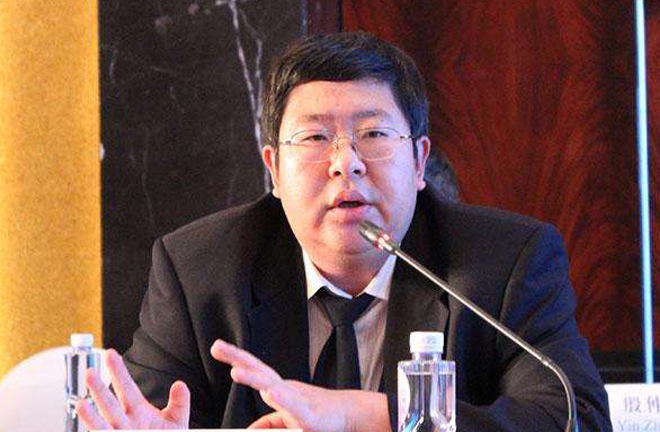JIA JINJING: BRICS, G20 support each other in global governance
 On June 19, the Meeting of BRICS Ministers of Foreign Affairs took place in Beijing, and recently, the BRICS held its summit for finance ministers and central bankers in Shanghai as well as the first BRICS Games in Guangzhou. In addition, the BRICS Political Parties, Think-tanks and Civil Society Organizations Forum took place in Fuzhou in southeast China’s Fujian Province. These extensive BRICS activities show that the mechanism is developing more deeply in more areas with a larger range.
On June 19, the Meeting of BRICS Ministers of Foreign Affairs took place in Beijing, and recently, the BRICS held its summit for finance ministers and central bankers in Shanghai as well as the first BRICS Games in Guangzhou. In addition, the BRICS Political Parties, Think-tanks and Civil Society Organizations Forum took place in Fuzhou in southeast China’s Fujian Province. These extensive BRICS activities show that the mechanism is developing more deeply in more areas with a larger range.
Also, other mechanisms for global governance are also active: the 2017 G7 summit opened in the Sicilian town of Taormina, southern Italy at the end of May, while the G20 summit 2017 is to be held in Hamburg, Germany this July. Undoubtedly, the BRICS meetings and the G7 summit will have important influence on the upcoming G20 summit.
Within the G20, the primary platform for international economic governance, the BRICS and G7 are the most important inter-state mechanisms. After a decade of development, BRICS has gradually gained an equal footing with the G7, which can be seen in the following three dimensions:
For one, the BRICS nations account for a large portion of the world’s economic growth. The populations of the BRICS countries account for nearly 40 percent of the world’s total. They have maintained a relatively high growth in the past 10 years, with their contribution to the world economy increasing from 12 percent to 23 percent, accounting for more than half of global economic growth.
Moreover, the trade and investment of these five countries grew significantly, enhancing their discourse power in the World Bank, the International Monetary Fund and other major international financial institutions. Therefore, with increasing economic growth, discourse power and voting rights, the BRICS mechanism is needed to represent 40 percent of the world’s population as it engages in global governance.
Furthermore, BRICS has learned from the G7. About three decades ago, G7 economies accounted for about 85 percent of the world’s total economic output, and at that time, it was the primary platform for international economic governance. However, since the 2008 international financial crisis, G7 countries have experienced an economic slowdown, and now account for less than 50 percent of the world economy.
But still the G7 is the biggest and most mature governance system. It is a model for other governance systems, like the G20 and BRICS.
In addition, BRICS and the G20 are leading the direction of global governance. The 2016 G20 Hangzhou Summit was an important turning point for global governance. It pledged to place innovative growth patterns and exploring growth potential at the core of global economic governance, and the implementation of 2030 sustainable development goals as the top agenda, redirecting global governance. Various outcome documents released at the 2017 BRICS meetings, including the “Media Note of the Meeting of the BRICS Ministers of Foreign Affairs and International Relations,” demonstrated the mechanism’s determination to shoulder the responsibility for implementing G20 policies.
Now, BRICS has forged a multi-dimensional network for cooperation and dialogue in various areas. In addition to leaders meetings and meetings of ministers in different departments, it also has formed mechanisms for financial cooperation, like the New Development Bank and the BRICS Contingent Reserve Arrangement and also other platforms including the BRICS Business Council, the BRICS Think Tanks Council and also those committed to anti-terrorism and cybersecurity. Moreover, the BRICS Games and other platforms for people-to-people exchanges are also emerging. The mechanism is improving itself to enhance its capacity in global governance. The BRICS and the G20 can serve as two vehicles through which China can play a role in global governance.
Jia Jinjing is a chief research fellow from the Chongyang Institute for Financial Studies at Renmin University of China.

 PRINT
PRINT CLOSE
CLOSE